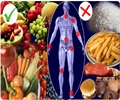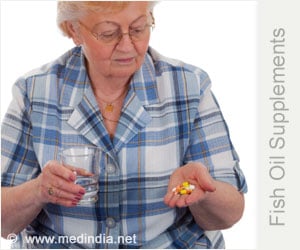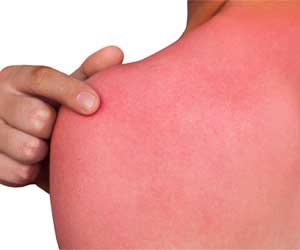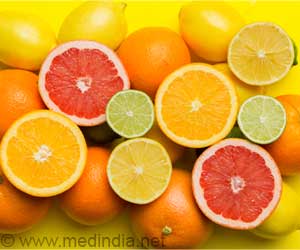What is Vidya Balan's 'No Raw' diet about? It excludes raw foods, focusing on cooked meals to reduce foodborne illness risk and improve digestion.
- The 'No Raw' diet reduces the risk of foodborne illness by avoiding raw foods
- Cooking foods can enhance nutrient bioavailability, making them easier to digest
- A balanced diet should include both cooked and raw foods for optimal health benefits
Cooking tomatoes boosts the absorption of the antioxidant lycopene, which is linked to reduced risk of chronic diseases! So better to have them cooked than raw! #health #nutrition #medindia’
What is The 'No Raw' Diet?
The 'No Raw' diet, as the name implies, excludes raw foods such as vegetables, fruits, meats, and dairy products. Instead, it encourages eating cooked or otherwise treated foods to eliminate their raw condition. Vidya Balan follows this diet, ensuring that her meals are safe, nutritious, and easily digested.The Rationale Behind Avoiding Raw Foods
One of the key reasons for adopting a 'No Raw' diet is to lower the risk of foodborne illness. Raw foods, particularly meats, eggs, and unpasteurized dairy products, can carry hazardous bacteria including Salmonella, E. coli, and Listeria (1✔ ✔Trusted SourceReview of major meat-borne zoonotic bacterial pathogens
Go to source). Cooking these meals completely can eliminate harmful bacteria, considerably lowering the risk of infection. This is especially important for vulnerable groups like pregnant women, small children, the elderly, and people with compromised immune systems.
Furthermore, heating food can degrade complex proteins and fibers, making them easier to digest. This is especially useful for older individuals (2✔ ✔Trusted Source
Methods for improving meat protein digestibility in older adults
Go to source) and people who have digestive problems including irritable bowel syndrome (IBS) or other gastrointestinal illnesses. For example, cooked vegetables and fruits are frequently easier on the digestive tract than raw ones.
Cooking Enhances Nutrient Bioavailability of Foods
Cooking can also increase the bioavailability of several nutrients. For example, the antioxidants lycopene in tomatoes and beta-carotene in carrots are more easily absorbed by the body after cooking (3✔ ✔Trusted SourceLycopene: A Critical Review of Digestion, Absorption, Metabolism, and Excretion
Go to source). Cooking can also deactivate antinutrients such as phytates and oxalates, which can interfere with mineral absorption. This indicates that cooking foods may provide additional nutritional benefits.
However, it is critical to adopt cooking methods that retain the greatest nutrients. Steaming, microwaving, and sautéing are favored ways since they need less water and produce less nutrient loss. Boiling, on the other hand, can cause the loss of water-soluble vitamins such as vitamin C and some B vitamins (4✔ ✔Trusted Source
Cooking at home to retain nutritional quality and minimise nutrient losses: A focus on vegetables, potatoes and pulses
Go to source). Thus, using a range of cooking methods can help to preserve the nutritional worth of meals.
A Balanced Diet is the Key to Good Health
While the 'No Raw' diet has some advantages, it is critical to maintain a balanced approach to nutrition. Raw foods contain important nutrients, enzymes, and fiber, which are beneficial to general health. A diet that incorporates both cooked and raw foods, customized to individual health needs, is frequently the best option.Who Should Avoid Raw Food?
Nutrition professionals have differing opinions on fully avoiding raw foods. Susmita N, a professional nutritionist at Cloud-Nine Group of Hospitals in Bengaluru, explains that avoiding raw meals can be advantageous for some people, especially those with sensitive digestive systems. She notes that boiling food breaks down complex proteins and fibers, making them simpler to digest while also improving their flavor and texture, which can promote a more varied and balanced diet.Susmita emphasizes the significance of avoiding raw foods during pregnancy to avoid infections that might affect both the mother and the growing child. She emphasizes the dangers of consuming raw foods such as sushi, unpasteurized dairy, and undercooked meats when pregnant.
On the other side, Sushma PS, the principal dietician at Jindal Naturecure Institute, advises against fully eliminating raw foods. She explains that raw foods are high in critical nutrients, enzymes, and fiber, which are beneficial to immunity, digestion, and overall health. Sushma promotes a well-balanced diet that includes both cooked and raw foods to guarantee appropriate nutritional absorption.
Practical Advice for Following the 'No Raw' Diet
If you are considering adopting the 'No Raw' diet, you must verify that you are still getting adequate nutrition. Maintain a balanced diet by incorporating a variety of cooked vegetables, fruits, grains, and proteins. This method helps to counteract any nutrient losses that occur while cooking, ensuring that your body obtains all of the critical vitamins and minerals it needs.Also, be cautious of the cooking methods you utilize. Avoid overcooking foods, as this might cause significant nutrient loss. To maintain a healthy relationship with food, pay attention to portion sizes and your body's hunger and fullness cues.
Vidya Balan's adherence to the 'No Raw' diet reflects an increasing awareness of food safety and nutrition. While this diet can provide various benefits, including a lower risk of foodborne disease and improved digestion, it is critical to maintain a balanced approach. Incorporating both cooked and raw foods, suited to individual health needs, can result in a balanced and healthy diet.
As usual, before making significant dietary changes, consult with a healthcare expert or a nutritionist to confirm that they are in line with your health objectives and needs.
References:
- Review of major meat-borne zoonotic bacterial pathogens - (https://pubmed.ncbi.nlm.nih.gov/36589940/)
- Methods for improving meat protein digestibility in older adults - (https://pubmed.ncbi.nlm.nih.gov/37093926/)
- Lycopene: A Critical Review of Digestion, Absorption, Metabolism, and Excretion - (https://pubmed.ncbi.nlm.nih.gov/33668703/)
- Cooking at home to retain nutritional quality and minimise nutrient losses: A focus on vegetables, potatoes and pulses - (https://pubmed.ncbi.nlm.nih.gov/36299246/)
Source-Medindia
















